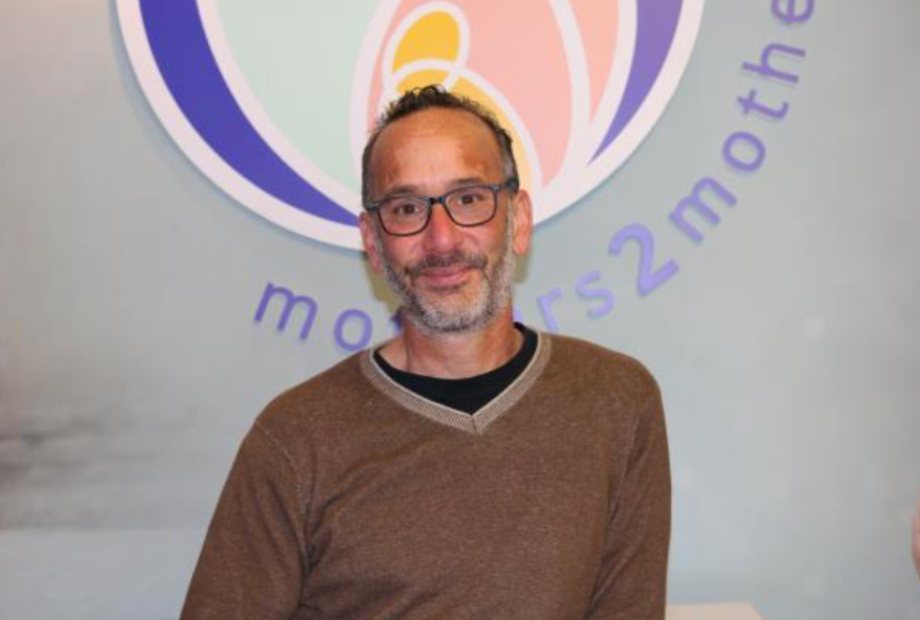
Seeing the Simple Amidst a Complex Health Challenge
By Steve Rudner, LGT Impact Fellow for mothers2mothers, Cape Town, South Africa
Sometimes, the seemingly simple things in life are the most effective.
For example, who would you rather discuss a problem with? A) a peer who you share things in common with, or B) a total stranger, from a different culture, who may not understand you and your personal situation?
I’m betting you would likely choose A. I know I would.
That’s the secret sauce underlying mothers2mothers (m2m), a South Africa-based international NGO operating in nine sub-Saharan African nations that employs and trains women living with HIV as community health workers called Mentor Mothers. Through a peer-based model, they support women, children, and adolescents from their own communities with vital medical services, education, and assistance.
Mentor Mothers intimately understand the feelings of despair and sheer terror when informed of an HIV-positive diagnosis. Many have stared back at stigmatism and cruel discrimination from their families and communities, while others are gender-based violence victims. Like hundreds of thousands of m2m clients living with HIV, Mentor Mothers’ tears flowed endlessly as they agonised over whether their unborn child would be born with HIV. They know what it’s like to lose their friends, lose their self-esteem, and at times, lose their hope for the future because of this virus.
These brave women have walked in those shoes for many years. Their path led them to m2m where they help clients fit into and adjust to similar footwear by, for example, educating and engaging with women and families who have not received medical care or who have stopped their HIV treatment. It’s remarkable to watch them together take the steps to an HIV-free future.

m2m’s solutions all start with one human simply connecting with another over shared realities and common experiences. That then creates a relationship which leads to life-saving education and medical care. Which in turn supports improved family health, and critically, hope that there is indeed a future to look forward to.
And simply put, hope is something we can ill afford to run out of at Ground Zero in the fight against HIV.
I don’t want to oversimplify m2m’s Peer Mentor Model. Battling HIV in sub-Saharan Africa is difficult, complex, and emotionally draining work that is constantly pummeled by unexpected geopolitical forces and economic developments.
Successfully executing this model year after year requires visionary leadership, ensuring the right people are on the bus, highly targeted planning, pinpoint monitoring and impact evaluation, and securing financial support from hundreds of funders like LGT Venture Philanthropy. It also involves 2,000 m2m team members passionately dedicated to lacing up their shoes every day to finally putting an end to paediatric AIDS.
In addressing HIV, you have to patiently whittle away at the issues and their root causes day after day, year after year. No matter how much money is committed to them, public health transformations take time. Disease transmissions are widespread, family and community structures are complex, centuries of societal behaviours and beliefs do not change overnight.
As an LGT Impact Fellow serving as the Strategic Liaison to m2m’s Chief Executive Officer, I rose to this challenge each day for 12 remarkable months, and not a day passed where I wasn’t inspired to apply everything I personally could to support the effort. I chipped away and chipped away, and during the year I saw measurable impact result from my contributions.

This organisation isn’t satisfied with the status quo. Never has been and never will. At m2m, ending HIV is just the start.
During the past few years, m2m has expanded into clinical services, begun addressing HIV/AIDS disease co-morbidities such as tuberculosis and diabetes, and created digital technology solutions that allow Mentor Mothers to virtually connect with clients when prevented from engaging in face-to-face interactions, such as during the COVID-19 pandemic. I was incredibly fortunate during my fellowship to help m2m explore where the organisation might be in 30 years, and consider the types of new business structures that could support this long-term perspective.
I know opportunities like this fellowship don’t come around often in a lifetime. It’s with great humility that I extend my gratitude to LGT Venture Philanthropy and m2m’s entire team, including their Boards of Directors and Trustees, for supporting and challenging me throughout this journey.
So, the next time you’re wrestling with a complex problem, consider applying one of my key takeaways from this fellowship: Step back, look at the situation differently, and break it down to its basics. Complicated approaches sometimes miss the obvious. Instead, see if perhaps a simple solution could lead to exponential results.
You never know: As a result of looking through this lens like m2m did, you might just reach more than 11 million people with life-saving services, become the world’s largest intentional employer of women living with HIV, help communities thrive, and achieve virtual elimination of mother-to-child transmission of HIV among your enrolled clients for five consecutive years.
That’s what’s possible when two people simply share a common reality and experiences.
